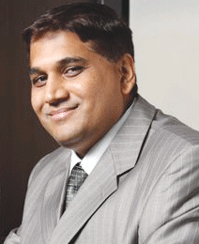 Teachers discharge a very important — but insufficiently acknowledged — role in the psychological, neurological and sociological development of their students. If we look carefully into what distinguishes well-balanced, successful individuals from the mass, it’s a passion for learning that transcends the structured classroom environment. Instead of limiting their education to formal schooling, they are curious about the world around them. They develop the spirit of enquiry and exploration and the curiosity to experiment. These qualities enable them to discover their true passions and strengths, which they build upon to achieve success in life. A study of Indian success stories will reveal that a common characteristic of successful individuals is that they have learnt the art to differ, and to do so with courage.
Teachers discharge a very important — but insufficiently acknowledged — role in the psychological, neurological and sociological development of their students. If we look carefully into what distinguishes well-balanced, successful individuals from the mass, it’s a passion for learning that transcends the structured classroom environment. Instead of limiting their education to formal schooling, they are curious about the world around them. They develop the spirit of enquiry and exploration and the curiosity to experiment. These qualities enable them to discover their true passions and strengths, which they build upon to achieve success in life. A study of Indian success stories will reveal that a common characteristic of successful individuals is that they have learnt the art to differ, and to do so with courage.
Teachers need to ask why their community doesn’t encourage the flowering of these qualities in our classrooms. In the new emerging world order, we have to address the issue of freeing the minds of students to explore, experiment and dissent. And the key to this attitudinal change within the students’ community is in radically changing how teachers impart information or knowledge to students.
With my rural background and primary education in interior Karnataka, I am only too aware that by placing control of learning in the hands of teachers and administrators who themselves have been groomed in a very structured system, the child’s natural love for learning is stifled.
Good teachers don’t believe that the sole purpose of education is for students to land good jobs, or fare well in examinations. Although this is part of their objective, great teachers are ones who help young minds grow and mature to better understand a changing world.
The best teachers aspire towards helping students live better and more fulfilled lives, rather than earn high salaries. They teach their students the value of learning constantly and continuously, and thus feel better about themselves, become better friends, parents and citizens.
Another erroneous belief that teachers need to shed is that parents of children in backward and rural districts of India are satisfied with any school. Informal surveys conducted by us in smaller cities and towns clearly indicates that all parents, no matter what their occupation, are intent on providing the best possible education to their children, subject to affordability constraints. Their problem is that there aren’t many options available to them.
As per our assessment, we found that a plumber or farmer in a small town with an annual income of Rs.1.5 lakh doesn’t mind spending Rs.600-1,000 per month on the education of his children, provided he is assured the education imparted is of good quality. And the litmus test of quality is the interest a child takes in her studies and the self-confidence she acquires.
We believe that we have cataylsed this critical attitudinal change in children enrolled in our school in Bellary, a small town in north Karnataka. And we plan to replicate this model in other towns and cities by establishing comprehensive educational institutions, from prep schools to higher secondaries across the state, and later expand our operations to other states.
The key factor in effecting this attitudinal change is our intensive focus on ‘teaching the teachers’ — how to think out-of-the-box, to communicate with students, and how to make prescribed texts interesting.
Changing teacher attitudes and traditional pedagogies is imperative, especially in district schools, where home environments tend to be unsupportive to students. Even in metros, with both parents working, home environments tend to be indiff-erent. Therefore project assignments have to be completed in school itself, or planned in such a way that it doesn’t take a child more that 20 minutes to complete them at home.
Moroever for students to realise their true inherent potential, teachers need to graduate from the staid chalk-n-talk teaching approach to student-centred interactive pedagogies wherein students are encouraged to question, experiment and get involved in the classroom learning experience. When teachers become facilitators of learning, students learn to create new knowledge and acquire vital self-learning, critical thinking and problem solving skills. In the world outside the classroom and in particular the workplace, these continuous learning qualities are highly valued, and the prerequisite of national development in an increasingly complex and fast-changing world.
Centres for excellence based in metros, through which global education experts can interact directly with up- country teachers and provide them aid, advice and information about best teaching practices, are beginning to play an important role. Contemporary ICT (information communication technologies) should be leveraged to aid teacher development. With broadband and computers easily available, sharing best practices and best faculty has become possible to radically improve teaching-learning standards.
(Prabhu Jahagirdar is the Bangalore-based director of Pupil Tree Learning Services Pvt Ltd)